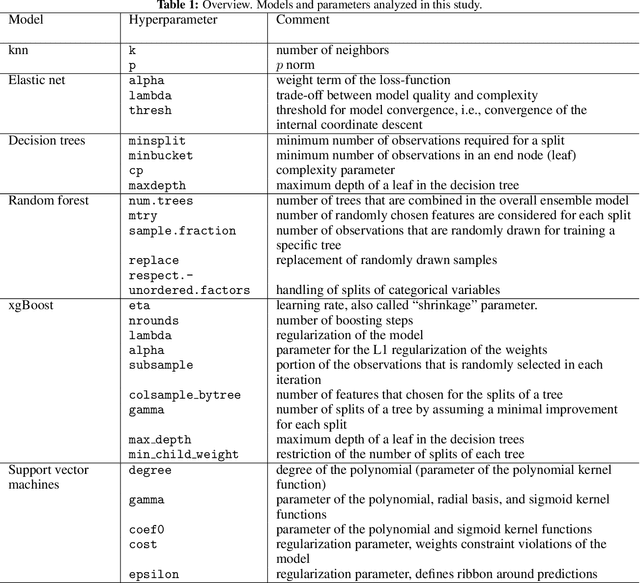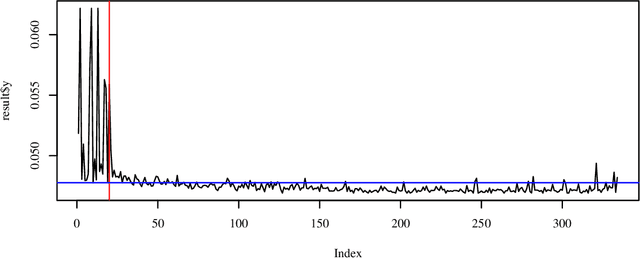Eva Bartz
Experimental Investigation and Evaluation of Model-based Hyperparameter Optimization
Jul 19, 2021



Abstract:Machine learning algorithms such as random forests or xgboost are gaining more importance and are increasingly incorporated into production processes in order to enable comprehensive digitization and, if possible, automation of processes. Hyperparameters of these algorithms used have to be set appropriately, which can be referred to as hyperparameter tuning or optimization. Based on the concept of tunability, this article presents an overview of theoretical and practical results for popular machine learning algorithms. This overview is accompanied by an experimental analysis of 30 hyperparameters from six relevant machine learning algorithms. In particular, it provides (i) a survey of important hyperparameters, (ii) two parameter tuning studies, and (iii) one extensive global parameter tuning study, as well as (iv) a new way, based on consensus ranking, to analyze results from multiple algorithms. The R package mlr is used as a uniform interface to the machine learning models. The R package SPOT is used to perform the actual tuning (optimization). All additional code is provided together with this paper.
Hospital Capacity Planning Using Discrete Event Simulation Under Special Consideration of the COVID-19 Pandemic
Dec 14, 2020Abstract:We present a resource-planning tool for hospitals under special consideration of the COVID-19 pandemic, called babsim.hospital. It provides many advantages for crisis teams, e.g., comparison with their own local planning, simulation of local events, simulation of several scenarios (worst / best case). There are benefits for medical professionals, e.g, analysis of the pandemic at local, regional, state and federal level, the consideration of special risk groups, tools for validating the length of stays and transition probabilities. Finally, there are potential advantages for administration, management, e.g., assessment of the situation of individual hospitals taking local events into account, consideration of relevant resources such as beds, ventilators, rooms, protective clothing, and personnel planning, e.g., medical and nursing staff. babsim.hospital combines simulation, optimization, statistics, and artificial intelligence processes in a very efficient way. The core is a discrete, event-based simulation model.
 Add to Chrome
Add to Chrome Add to Firefox
Add to Firefox Add to Edge
Add to Edge